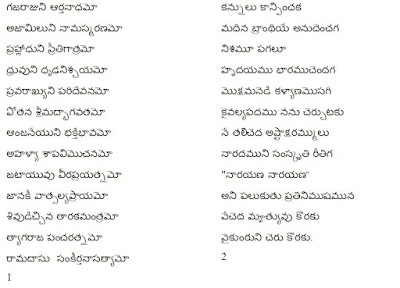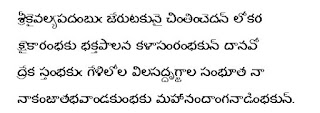
This is another poem from the epic of “Gajendramoksham”. When I was a kid, I couldn’t get the emotions behind this poem, but later on when I started thinking on my own, my eyes filled with tears whenever I read or heard this padyam. Of course I admit I am very emotional but I believe this poem will cause everyone a tinge of sorrow in their hearts at the plight of the elephant king and at the same filled with utmost devotion to the Ultimate Liberator, Sri Maha Vishnu. Context: The whole story of Gajendra Moksham is how the Elephant King gets “ moksham ”, the Telugu/Sanskrit word, the closest equivalent in English I can think of is absolute Liberation . The scene starts with the Elephant King leading his herd and moving across the thick forest towards the river for quenching their thirst. It is described very graciously that, as the herd moved, the Elephant King glowed with pride, and all the animals in the jungle get scared, as if the Earth shook during Pralaya, destruction of Universe...



